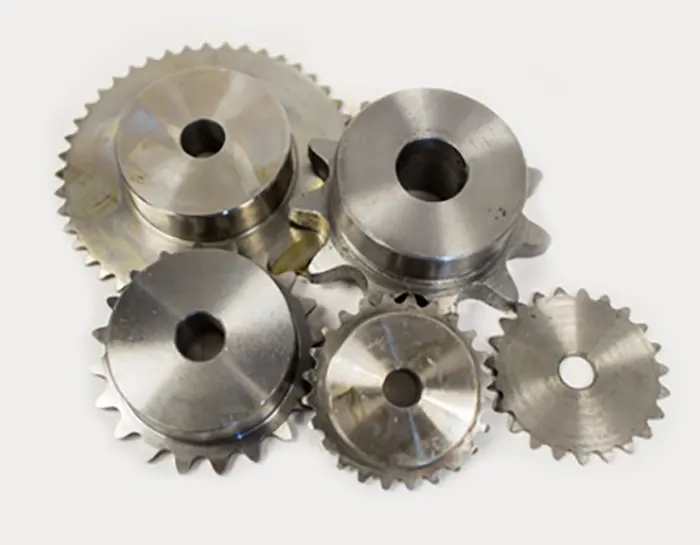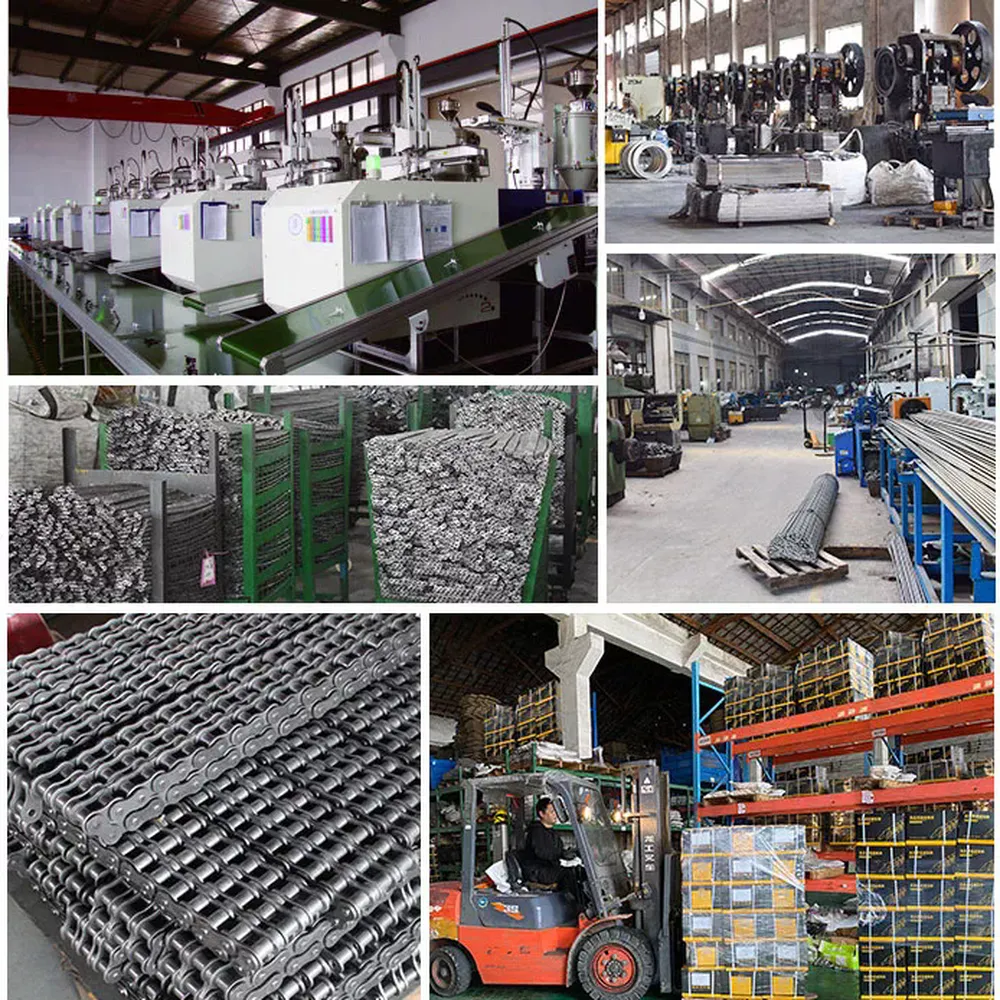In pharmaceutical clean rooms, the use of stainless steel table top plate chains is crucial for maintaining a hygienic and contamination-free environment. These chains are specifically designed to meet the unique requirements of pharmaceutical applications, offering several advantages over other types of chains.
Material
1. 304 Stainless Steel
304 stainless steel is a widely used material for table top plate chains. It offers excellent corrosion resistance and wear resistance, making it suitable for pharmaceutical clean rooms.
2. 316 Stainless Steel
316 stainless steel is an upgraded version of 304 stainless steel, with the addition of molybdenum. It provides enhanced corrosion resistance, especially in environments with chloride ions.
3. 420 Stainless Steel
420 stainless steel is known for its excellent wear resistance and heat resistance, making it suitable for the demanding conditions of pharmaceutical clean rooms.
Chain Structure and Composition
The table top plate chain consists of two main components:
1. Chain Plates
The chain plates form the body of the conveyor chain and are made of pressed stainless steel. They have a smooth surface that is easy to clean, ensuring the highest levels of hygiene in pharmaceutical clean rooms.
2. Roller Pins
The roller pins connect the chain plates, creating a flat surface for smooth and efficient conveying in pharmaceutical applications.
Applications
The stainless steel table top plate chains are widely used in various applications within pharmaceutical clean rooms. Some specific applications include:
- Product conveying
- Material handling
- Sorting and packaging
- Sterilization processes
Why Choose Stainless Steel Table Top Plate Chains for Pharmaceutical Clean Rooms?
There are several reasons why these chains are ideal for pharmaceutical clean room applications:
- High corrosion resistance ensures the chains can withstand the harsh conditions and chemicals used in pharmaceutical processes.
- Excellent wear resistance extends the service life of the chains, reducing maintenance and replacement costs.
- The smooth surface of the chain plates allows for easy cleaning and prevents the accumulation of contaminants.
- The design and composition of the chains meet the stringent cleanliness and hygiene requirements of pharmaceutical clean rooms.
Maintenance and Care
To ensure optimal performance and longevity of the stainless steel table top plate chains, regular maintenance is essential. Here are some key maintenance practices:
- Regularly clean the chains to remove any debris or contaminants.
- Inspect the chains for any signs of wear or damage and replace as necessary.
- Lubricate the chains with a suitable food-grade lubricant to reduce friction and prevent corrosion.
- Follow the manufacturer’s recommendations for maintenance intervals and procedures.
Stainless Steel Sprockets for Chains
Stainless steel sprockets are an essential component that complements the stainless steel table top plate chains. The sprockets provide the necessary teeth for the chains to engage and move efficiently. The compatibility between the chains and sprockets ensures smooth and reliable operation in pharmaceutical clean rooms.
Our company offers a range of stainless steel sprockets that are specifically designed to work seamlessly with the table top plate chains. These sprockets are made from high-quality stainless steel and undergo rigorous testing to ensure their performance and durability in pharmaceutical applications.
Edited by Zqq
About Our Company
Our company is a leading manufacturer of stainless steel chains with over 20 years of experience. We specialize in the design, manufacturing, and sales of stainless steel chains for various industries. Our products are certified to meet international quality standards, including ISO9001:2015, ISO14001:2015, and GB/T9001-2016. We offer a wide range of chains, including precision roller chains, conveyor chains, attachment chains, welded chains, plate chains, and sprockets. The materials we use include stainless steel 304, 310, 321, 316, 410, 420, 431, 630, and 2205.
Our chains are widely used in industries such as food processing, pharmaceuticals, chemicals, electronics, appliances, automotive manufacturing, machinery, metallurgy, and wastewater treatment. We also offer customization services based on customer requirements. Our products are known for their high strength, strong corrosion resistance, excellent wear resistance, and long service life. We have a strong reputation in the domestic market and also export our products to Europe, America, Southeast Asia, and other regions.
At our company, we prioritize customer satisfaction and strive to provide high-quality products and services. We encourage customers to explore our stainless steel table top plate chains for pharmaceutical clean rooms and contact us for purchasing inquiries.
Q&A
Q: Are stainless steel table top plate chains suitable for other industries apart from pharmaceutical clean rooms?
A: Yes, stainless steel table top plate chains are versatile and can be used in various industries that require hygienic and corrosion-resistant conveying solutions. They are commonly found in food processing, beverage production, and electronics manufacturing, among other applications.
Q: Can the stainless steel table top plate chains withstand high temperatures?
A: Yes, stainless steel table top plate chains, especially those made from 420 stainless steel, have excellent heat resistance. They can withstand high temperatures commonly encountered in sterilization processes and other heat-intensive applications.
Q: How do I determine the appropriate size and specifications of the chains for my specific application?
A: It is recommended to consult with our technical team or refer to our product catalog for detailed information on chain sizes and specifications. Factors such as load capacity, conveyor speed, and environmental conditions play a crucial role in selecting the right chain for your application.







